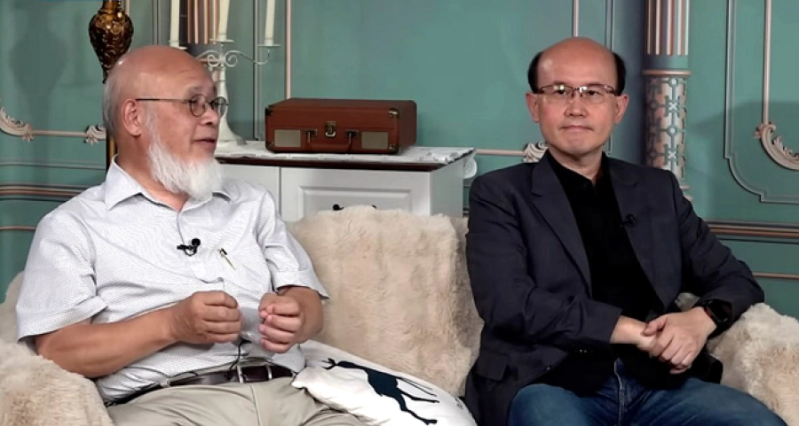
In today’s digital age, artificial intelligence (AI) is redefining the boundaries of creativity, and even preaching is not immune to its influence. Pastors and believers alike are exploring how AI might be applied to the realm of faith. But can God’s Word truly be "generated" by AI? What are the potential risks when AI is used to create prayers and sermons?
In a recent episode of Faith Clearly Explained by Media Evangelism, Pastor Chan Yip-kong, director of Whampoa Alliance Church, and Pastor Lo Lung-kwong, former president of the Hong Kong Methodist Church, engaged in an in-depth discussion about the implications of AI in preaching.
Pastor Chan Yip-kong: Sermons Generated by AI Risk Becoming Clichéd
Pastor Chan Yip-kong expressed concern that preaching and prayer are particularly susceptible to being overtaken by AI. He observed that AI-generated prayers often surpass human-composed ones in both eloquence and emotional appeal. “AI can incorporate a preacher’s exegesis to produce sermons that might be better than what an individual could write, because its ability to gather and analyze information is superior,” he noted.
Chan argued that AI-generated messages operate according to pre-established patterns, a phenomenon already familiar within religious circles. He compared this to the Pharisees and scribes of Jesus’ time, who adhered to rigid formats for delivering messages. When Jesus preached in a manner that diverged from these established norms, He was rejected by the religious leaders.
Chan emphasized that without a personal relationship and direct engagement with God, preaching inevitably becomes stale. However, he acknowledged that AI can serve as a tool to discern whether a preacher’s message reflects thoughtful engagement or is merely regurgitated content.
Caution Against the "AI-ization" of Christianity
Pastor Chan also warned that modern society is unwittingly becoming "AI-ized" by relying on online sources for information. If both preachers and congregants merely follow preset patterns, Christianity risks devolving into a religion focused on rules rather than transformation. He explained, “Religion emphasizes rules and fixed paths, but Scripture calls for the renewal of the mind. In God’s light, we are continually transformed and grow.”
Chan underscored the danger of adopting a rigid, formulaic understanding of God’s work: “If we believe that 'good things happen to good people,' what happens when good people suffer? Over-relying on logic and predetermined paths prevents God from intervening. When life’s challenges arise, quoting appropriate Bible verses becomes a substitute for seeking God Himself. Both the Pharisees of the past and modern AI are products of human ingenuity that create religious structures.”
Nonetheless, Chan sees AI as a valuable reminder: “We are not to pursue elegant knowledge or human wisdom, but to fear the Lord, which is the beginning of wisdom. With a humble heart, we seek continual renewal in God, lest we become religious products of 'AI-ization.'”
Pastor Lo Lung-kwong: AI Is a Tool, Not a Replacement for People
Pastor Lo Lung-kwong, though retired from seminary teaching, remains active in ministry. He views AI as a helpful tool, a product of human intelligence and accumulated experience. According to Lu, AI itself is neither good nor bad; the key lies in how humans use it. He quipped, “If you fear AI threatens you, it might mean you’re not progressing.”
Lo believes AI can assist pastors in preparing sermons and prayers, but the task of interpretation and delivery belongs solely to humans. Using the example of the benediction in worship services, he pointed out that churches have long used Paul’s prayers, which follow fixed patterns. Yet, the impact varies depending on the pastor delivering the blessing and how the congregation receives it.
“AI is merely a tool,” Lo reiterated, “a valuable assistant, but it can never replace human relationships in the church. People control AI, not the other way around. It reminds us of our responsibility: we use it; we are not ruled by it.”
He concluded with a powerful statement: “AI might replace Pharisees, but it cannot replace Jesus—or the dedicated pastors and preachers who labor faithfully.”







